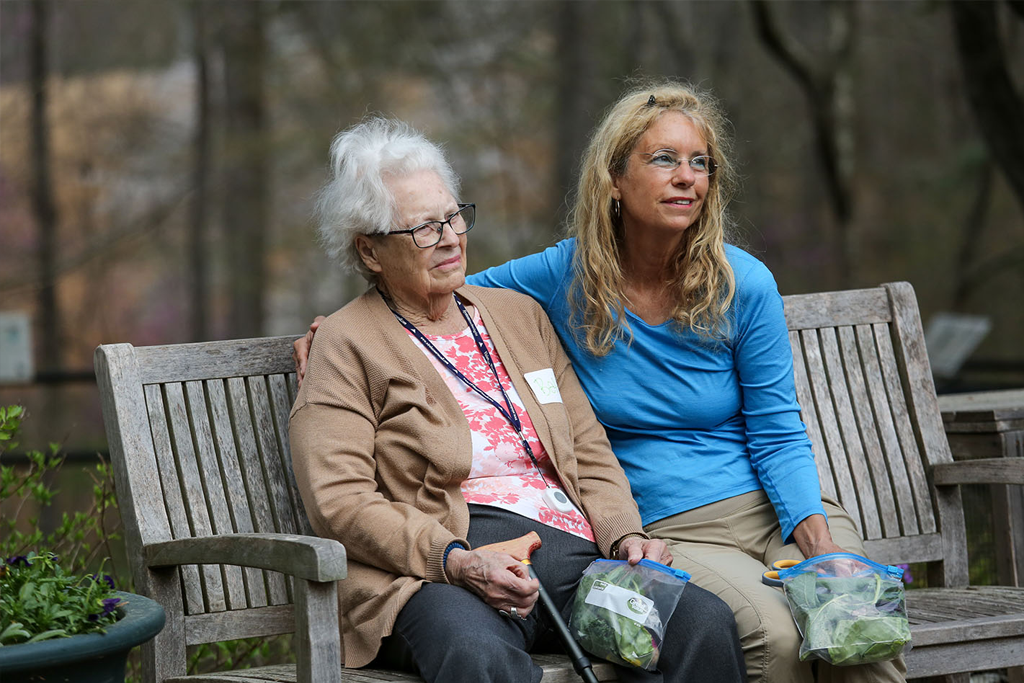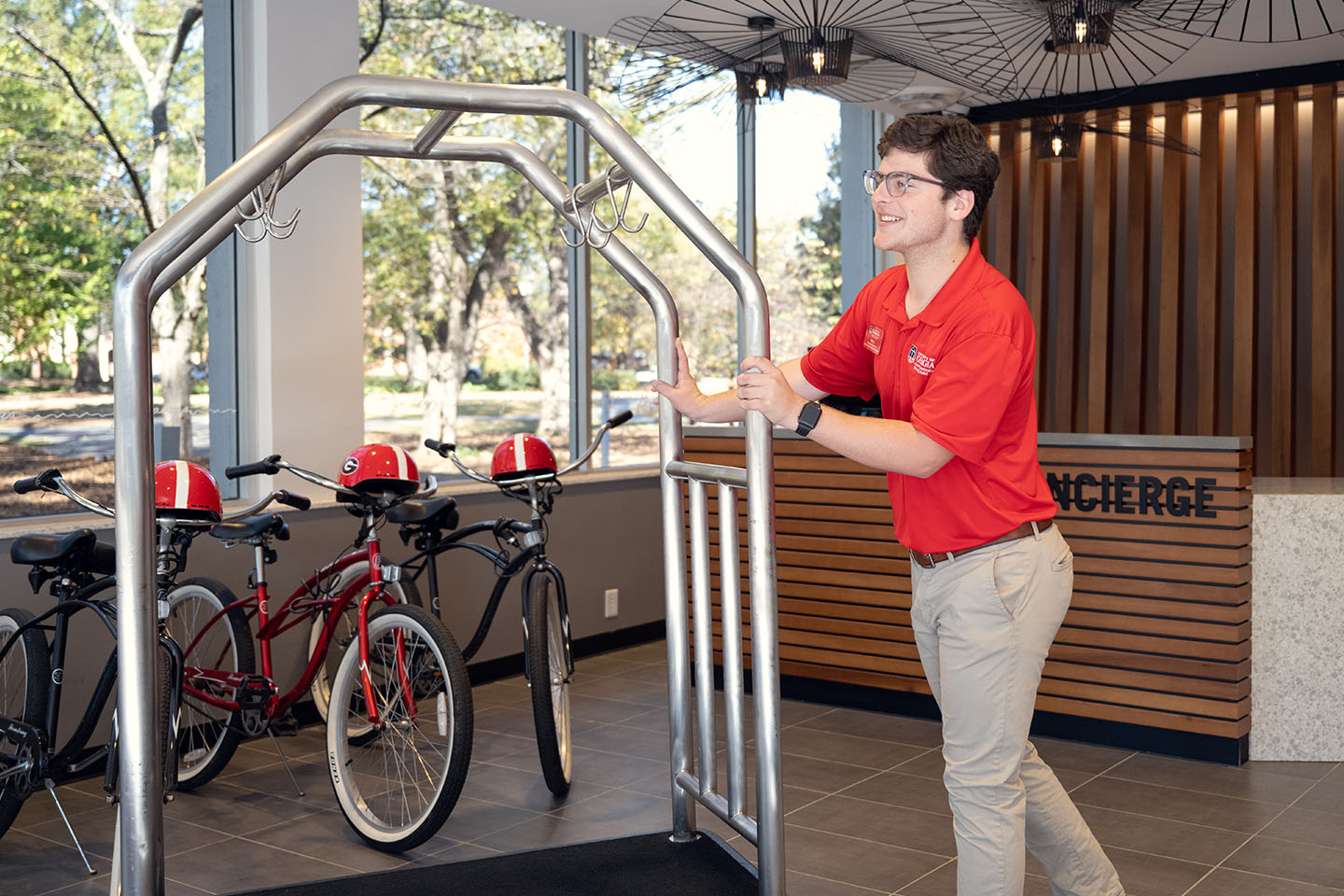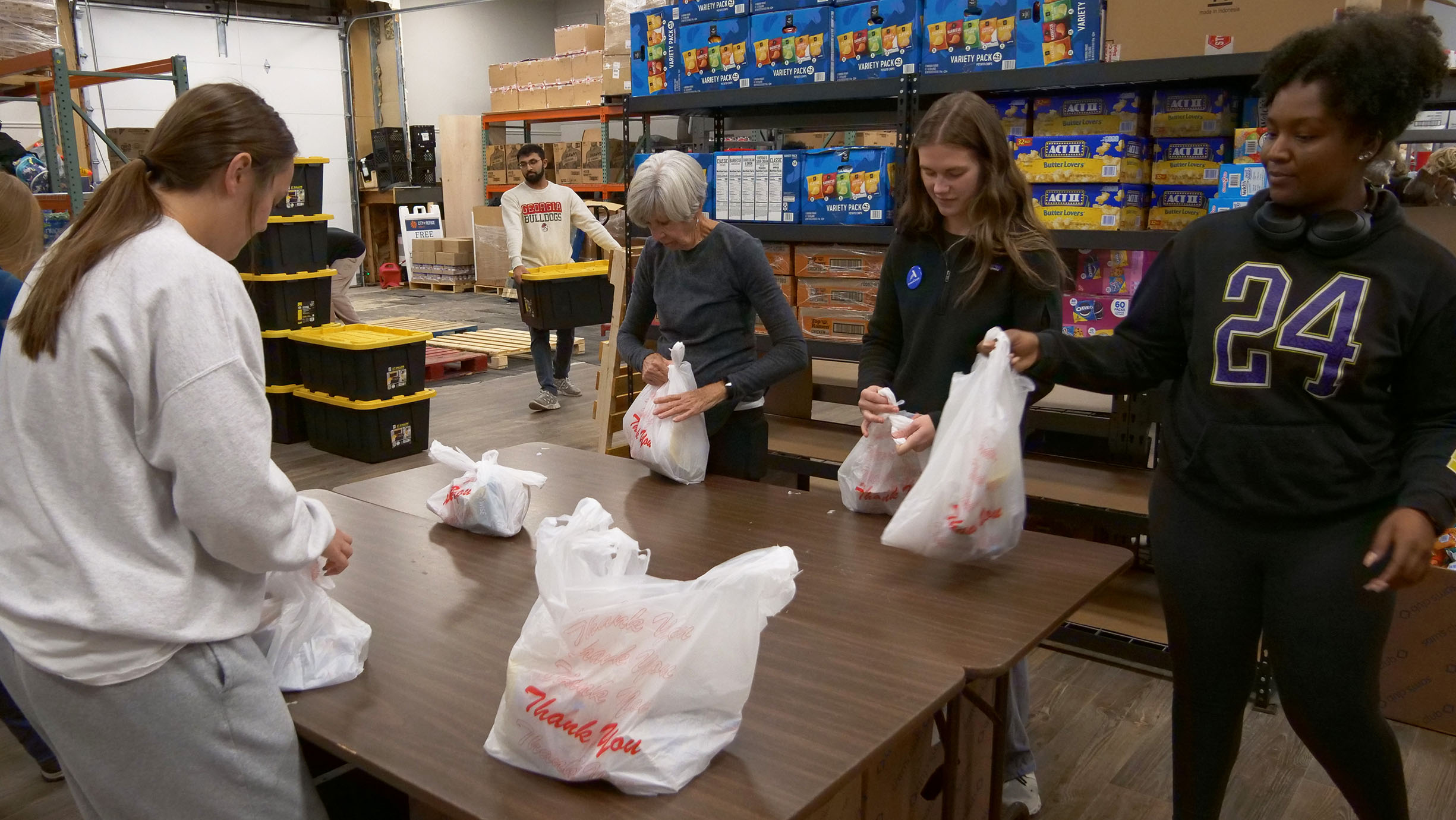Bonding through Basketball
After-school programs leverage sports and tutoring to connect UGA and Athens students
File Under
In the Hilsman Middle School gym, the boys’ basketball team and a group of University of Georgia students don the yellow and black Panthers’ jerseys. The team divides into two, and—accompanied by UGA students—begins to scrimmage. Despite the gray Monday afternoon, the student-athletes and their mentors are laughing, and a friendly competition is underway.
Meanwhile, members of the girls’ basketball team are sitting in a social studies classroom, laptops open, and asking questions about the circulatory system, all students from the University of Georgia. A red velvet cake is sitting in the corner of the classroom, waiting for the tutoring session to conclude so that the Hilsman and UGA students can celebrate the semester that they’re wrapping up.

These students—middle schoolers and UGA students alike—are participating in an after-school tutoring and athletic program designed to build relationships between the two groups. As part of a UGA kinesiology service-learning course, about 20 UGA students travel to Hilsman Middle School twice a week to coach sports teams and tutor student-athletes.
The after-school program, which operates during the fall and spring sports seasons, supports the boys’ and girls’ basketball teams as well as the track team. This spring will mark the third year of the program.
UGA tutors usually focus on math and science. It’s all about individual students’ needs, says Daniel Culliver, Hilsman’s athletic director and sixth-grade social studies teacher. His fellow Hilsman teachers tell Culliver what assistance individual students need—such as help completing homework or clarification of their lessons—and he asks the UGA mentors to work with the Hilsman students on those items.
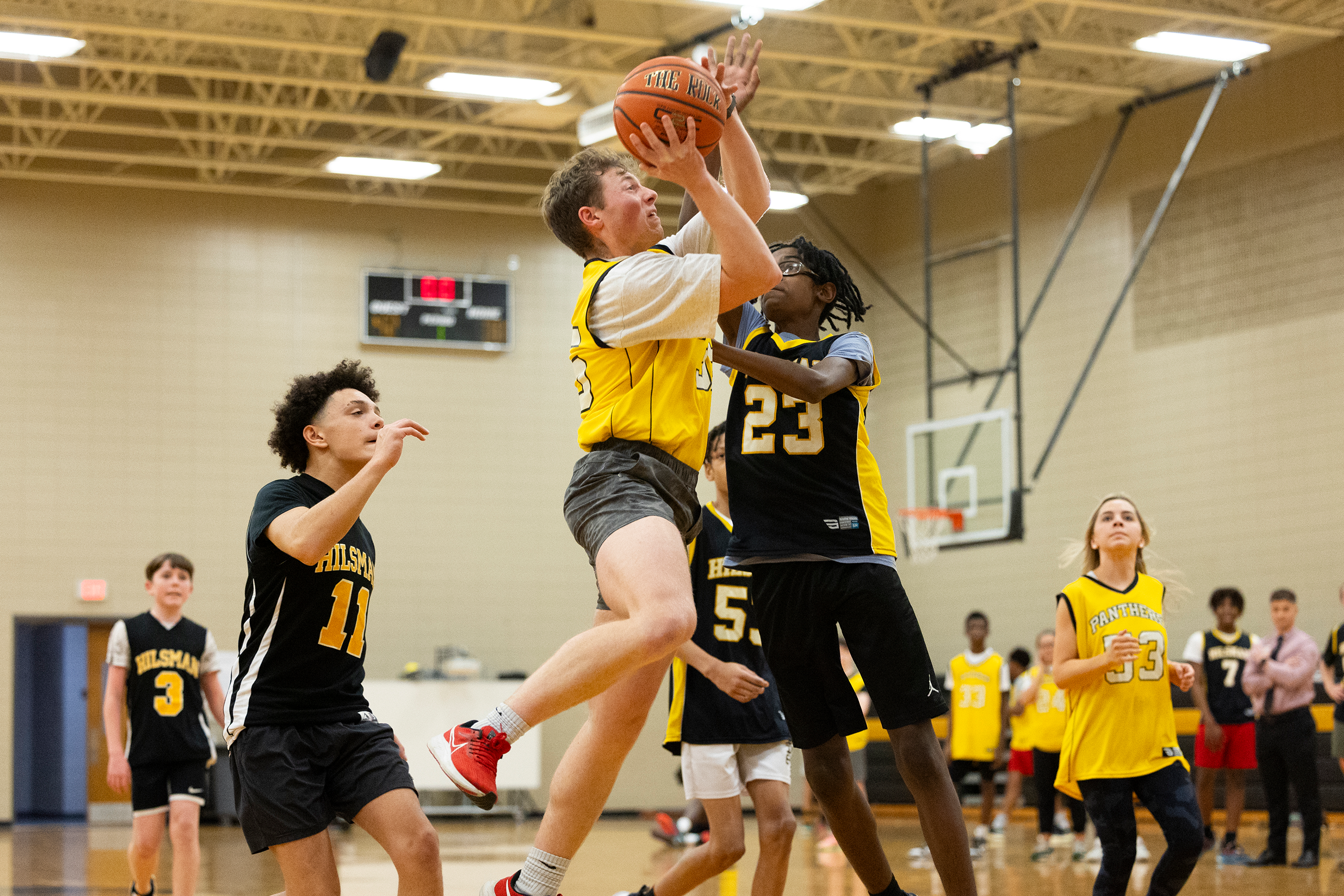
Producing Results
“The mentors can bridge the gap of understanding by translating academic concepts to everyday life.”
Culliver said the program works because the UGA students share their life experiences and relate to the Hilsman students.
“The mentors can bridge the gap of understanding by translating academic concepts to everyday life,” Culliver says.
It’s made a difference. Culliver says he and other teachers have noticed students are showing a better grasp of subjects and they’re completing more of their assignments.
“The tutoring is educational, and the basketball is fun,” said Kennedi Tolbert, a seventh-grade member of the Hilsman girls’ basketball team. “They help us understand what we are learning in school. They put it in a different way.”

Jason Edwards, now a public service faculty member at UGA’s J.W. Fanning Institute for Leadership Development, collaborated as a graduate student with the Office of Service-Learning to develop the service-learning course. He worked closely with school district officials and Hilsman teachers to create a program that would benefit both Hilsman and UGA students.
“I love UGA. I love the Clarke County School District. I wanted to see how we build a program that’s mutually beneficial.”
“I love UGA. I love the Clarke County School District. I wanted to see how we build a program that’s mutually beneficial,” Edwards said.
Edwards studied the Hilsman participants’ experiences, and his results concurred with Culliver’s assessment. Hilsman students said the academic support helped them complete their homework and improve their grades. They also enjoyed connecting with the UGA students, who helped make their goals more tangible and the idea of going to college more realistic.
“They said that the relationships they formed were transformational. They valued having someone to talk to and having mentors who helped them through challenges,” Edwards said. “They saw their mentors as big brothers and big sisters.”
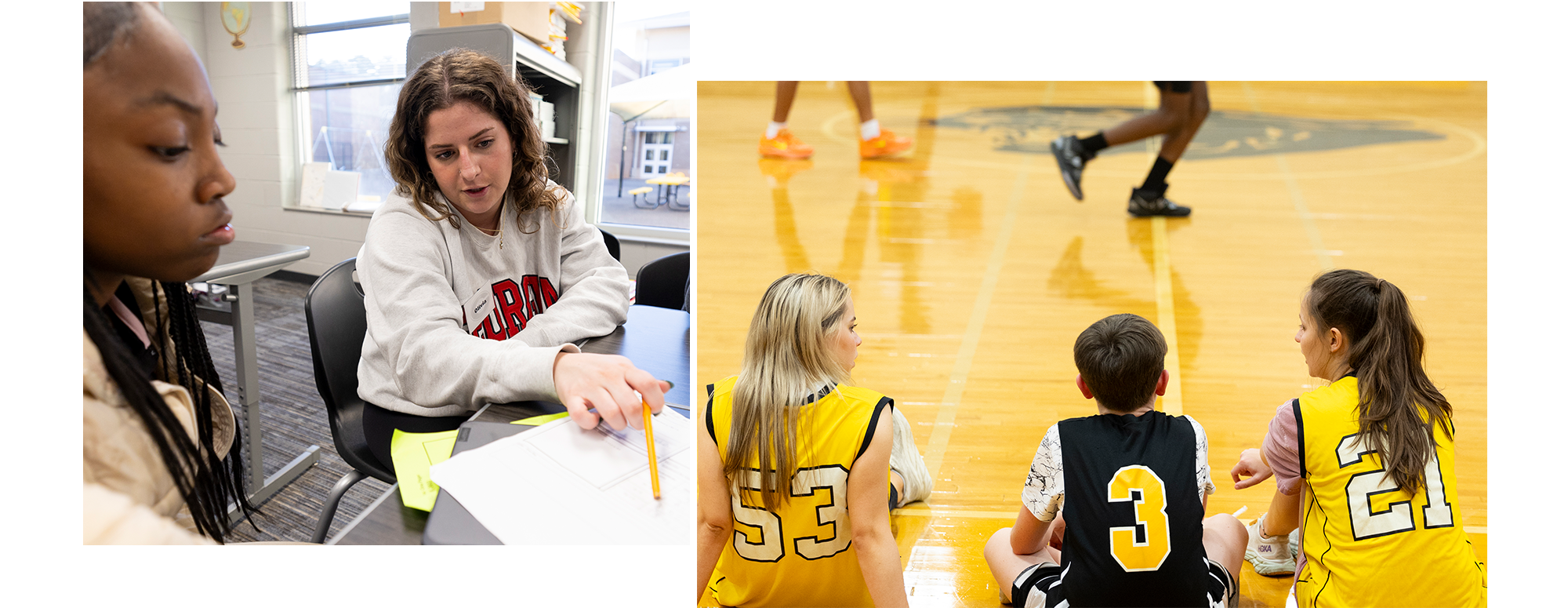
Expanding Programming
The program is part of a wider effort by the University of Georgia for its students to serve local schools while advancing the UGA students’ learning and development. The students in Athens-Clarke County have found relatable mentors in the form of college students.
Building on the Hilsman program’s success, UGA is launching a similar partnership with elementary schools.
“Our goal is to show the students that reading can be fun while also fostering social and emotional growth.”
Allison Popchock joined UGA’s Office of Service-Learning this fall as the Community Partnerships Coordinator and leads the office’s new after-school program. The program will connect about 50 UGA students with four Clarke County elementary schools to serve as sports coaches and literacy tutors for the fourth and fifth-grade cheerleading and basketball teams.
“Our goal is to show the students that reading can be fun while also fostering social and emotional growth,” Popchock said.
UGA students will teach small groups of elementary schoolers and will play games in the classroom and on the field, hoping to develop a love for words as well as for physical activity. This spring, the initiative will expand to the schools’ soccer teams.
UGA and local schools expect that these programs will help their students to learn skills critical to their academic success. But, they’ve also been pleased to see that students and their tutors have grown personally through the relationships that they have formed with one another.
“It is more meaningful than a traditional tutoring relationship because the students and their mentors are able to connect about sports and physical activity, topics that they’re both passionate about,” said Daphne Schmid, the instructor of the kinesiology service-learning course partnered with Hilsman Middle School. “It levels the playing ground and helps them form closer relationships.”
Written by: Kristen Linthicum
Photos by: Andy Tucker
Videos by: Krista McKinney

